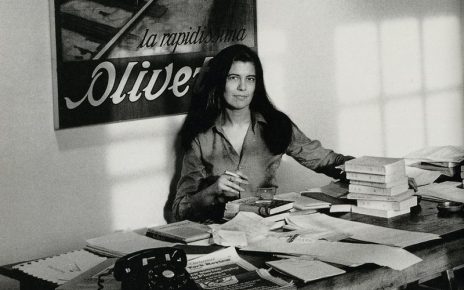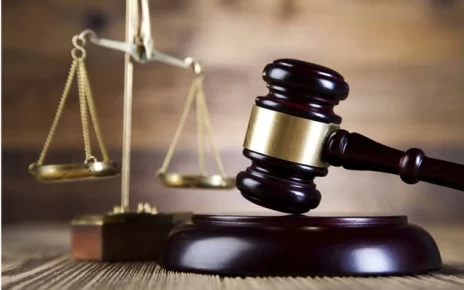By Sean Dempsey, 7/1/23
The arduous task was done. The property was finally his.
It has sapped nearly all John’s energy, but he could now call himself a homeowner. He had a place of his own to plant his flag, to ‘sow his oats’, so to speak. The signatures on the papers were still wet as he drove home from the law office with the heavy stack beside him. The office had not given him a proper binder or bag, so he had just a tall pile of papers almost a foot high. With a small laugh of amusement, he had used both seatbelt straps on the passenger side to secure them so they would not tip as he drove.
He parked his car in the garage—his garage—and turned off the ignition. He smiled again. He was home.
=========
A letter arrived a couple months later.
The novelty of his new home was still warm, but the simple pleasures had dimmed. John learned quickly the routines of his neighbors and the nocturnal sounds of local pet dogs who seemed to have few boundaries, and kept hours that suited them best.
The letter was enigmatic to be sure. He read it several times without clear comprehension. For what he could tell, it was from the bank, but the message seemed confused and almost threatening.
He decided it best to head to the bank directly and so called out sick from work at once, making a quick apology.
Arriving at the bank, he got in queue and upon his turn, some time later, he asked the teller if he could speak to the manager about a letter he received.
“That would be quite impossible. The manager is quite busy today. Do you have an appointment?”
John said he did not, but the matter was of some urgency as it pertained to legal matters in reference to his new mortgage.
“I see,” said the teller. “Well, in that case please fill out this form and I will see it is property sorted and prioritized.”
She handed John a blue piece of paper and a pen and asked him to take a seat and complete the required paperwork.
The form was complex, asking for a number of pieces of information about his line of work, his date of birth, his financial records, et cetera. John turned to his left and right and saw many others filling out similar forms with their families besides them.
Finally he completed the form and got back in queue to see the teller. The line was longer than before and took some time to reach the end. When he finally did nearly an hour later, he gave the teller his form and asked when he might be able to have an appointment with the bank manager to discuss the letter he received.
The teller looked over the papers with a quick, perfunctory gaze. “Ah, sir, I see you have filled out the wrong form. If you wish to speak to a bank manager about a mortgage issue, this form here is the correct form. I apologize if you were misinformed.”
John opened his mouth to protest, and explain that the teller had been the one to give him the original form to begin with. But she had already excused him and was now speaking to the person behind him in line.
He returned to the waiting area. Unfortunately his seat had been taken. The room was even more crowded than before.
John made for the door, thinking he would just go home and attempt to call the bank manager directly. But as he considered this, he opened and reread the letter in his pocket he had received from the bank. It contained no direct phone number to call, only the address and main number for the bank. He also perceived as he took stock of his surroundings that tellers were intermittently taking calls as they served their customers in line. And in each case, they hung up after just a few seconds—seemingly to explain that the matter the person on the phone sought was not attainable over the phone, with their sincerest apologies.
He turned back and headed to a relatively quiet section of the waiting room. Despite the number of people here, the room was orderly and quiet. Individuals stared ahead and minded their own business. The sterile atmosphere seemed to sap their friendliness.
He looked at the new form. It was indeed a different form; it had a different color entirely to it. This form was teal. John began filling it out. Much of the info requested was identical to that of the first form, just ordered differently on the pages. He worked through it and finally completed it.
John reentered the queue again. He looked around; more lines had opened up. But the number of tellers seemed tragically insufficient to the number of people in the room.
The customers wore tired, dejected faces like masks; their eyes were sad. Most did not look at him but clutched their forms in their hands—as if they might be ripped from them—and stared forward at the back of the head of the person in front of them.
John’s wait was interminable. Finally he reached the teller. He thought she was a different teller from before, but he couldn’t be sure.
“John D—— to arrange an appointment to see the bank manager.” He handed the teller his form.
She examined it perfunctorily. “Have a seat in Conference Room D. When he becomes available, he will come to get you.” She gave John a nod to the direction she intended him to go, but provided no other guidance.
John moved toward the direction she indicated and turned the corner.
He seemed to finally be getting somewhere! He breathed a sigh of relief. John walked down the long hall looking for a sign on some door to explain where to go. The doors all looked the same. They were unnumbered and painted with a metallic coating.
A man approached him in a banking uniform. John stopped him and asked for conference room D. “Do you have an appointment?” asked the man. “Well, yes, that is, I think” said John uncertainly. He explained he was instructed to head to conference room D by one of the front tellers.
“Well, you cannot go to conference room D without an appointment I’m afraid” said the official. “And it is not in this section at all anyway. So I’m terribly sorry, but if you’ll follow me I’ll bring you to the waiting room where you can be served properly by our most excellent staff of tellers.”
John began to protest — but the man was an official of the bank; so he allowed him to bring him back to the waiting area.
The bank official then gave John a polite nod, and said he was late for an important meeting and must be on his way.
John was confused as what to do next. He thought of getting back in line, but the idea repulsed him. He looked at his watch. More than half the day was gone.
He stared at the hallway he had come from for a few minutes. He considered walking back there again to seek for conference room D. But he dared not. The bank had rules against interlopers no doubt, and he assumed the passage was surely watched with security cameras.
Suddenly he heard his name spoken softly into the air…
“John D——“ a pleasant woman in a green dress spoke up from a doorway not far from where he was standing. “Yes, that’s me,” said John impatiently and walked over to her. “Your conference room is open, sir, if you’ll follow me.”
John smiled. He quickly rushed into step with the woman in green and was led into a room several hallways away. It bore a metallic door like the rest. “Right this way, sir” she said genteelly.
John stepped into the room and took a seat. There was a nice, long table of oak or maple, he did not know which. “Thank you,” he said to the woman. She smiled and turned to leave. “Please wait here and someone will be with you shortly.”
John sat. And he waited. And waited. Hours passed.
The wait was worse than before. Before he had people, other banking customers, to share it with. In this small, ornate room it was just him with his thoughts. He began to despair.
“Why am I even here?” He began to think to himself. “What is this matter even about? I surely have done nothing wrong…”
Finally the door opened and a short, plump, bald man walked in, without looking at John. He took a seat across from him and stared at a bunch of files he had with him.
“Good afternoon,” John spoke after a bit.
The man proceeded to ruffle through some files and then at last seemed to find the one he was looking for. “Yes, here it is. I see.”
“Are you the bank manager?” John asked
“Ha, certainly not,” he guffawed, “He is far, far too busy to be involved with a situation such as this…. You came today without an appointment, I see. How typical. Your case seems well decided by now anyway. Yes, the matter seems quite settled.”
John stared at the man, daring not to interject. “Sir, I don’t know what you mean—“
“Yes, yes quite settled. It’s all here in black and white.”
The bank man stood up, as if the matter was concluded. “I’ll get the necessary paperwork filed in the morning of course. Until then, not much you can do…”
“But sir—“
The man just only then took notice of John and looked at him. “You’ll of course have a mountain of paperwork to sign and notarize. These things do take time. Foreclosure is a tricky business. A lot of work for us here at the bank. Sad indeed, but we bear our cross with humility and pride. It is all part of the work of an illustrious banker, afterall.”
“Foreclosure!? But sir— I only just got the house. How is this possible?”
“Now sir, please. Be respectful, I dare say. I am an Employee of the bank, afterall. I’m on your side of course. You of all people should realize that.”
“Well—yes, of course. I trust you of course, sir” John replied, “but please help me understand what can be done. How did this happen?”
“How this happened?” A small vein at the top of the man’s bald head began to pulsate. “Sir, how these sort of things always happen. A complete disrespect to the matter of Law, and a lack of attention to the details! To the details, sir. The details are always of vital importance.”
John had a hard time taking his eyes off the pulsating vein. He unsuccessfully tried several times to bring his eyes to meet the man’s piercing gaze.
The man continued, unflinching and unnoticing of John’s discomfort. “And moreso, sir, as I’m sure you have no doubt we made every possible effort to ameliorate the situation — we took every conceivable loophole under the Law that availed itself to you — to try to save you from yourself, sir. But the matter, as they say, has concluded. There are no more avenues for appeal. Our attorneys of course attempted a ‘bench review’ of the situation pertinent to your appraisal of course. That was a dead end, as I’m sure you know. And of course the numbers do not lie! To even suggest such a thing is ridiculous, not that you do, sir. But the matter is now quite formally concluded and I’ll be needing your keys at once.”
“My keys…to my house?”
“Do you think we require your vehicle? Ha. Why of course to the house, sir. The bank’s house you mean. Please forfeit your keys and then be sure to vacate the premise by midnight tonight, forthwith.”
“But must I go so soon? I have only just attained my property…? The paperwork is all complete and signed. Surely this is some mistake! My lawyer will settle the matter for you, I am sure of it.”
“Your lawyer? Which lawyer is that, sir? Our attorneys handled all your paperwork. Our title company handled your title. Our real estate agents brokered your sale. You furnished not even a deposit, as was your right — and quite right not to do so as, per government benevolence and through the good graces of our bank, any amount put down on your house would only have increased your interest rate and ruined your credit. But that is neither here nor there. Your keys, sir — I must insist. The bank is very jealous of its property.”
John sheepishly fumbled in his pocket and collected his keys. He handed them over to the official.
“I am on your side, sir, of course.” Said the official respectfully. “And I will surely do all in my power to procure for you another house! Home ownership, truly, is the marvel of the modern world. That a humble man can reach his potential is what we do here at the bank. It is our privledge to serve the working man. And your education affords you great status and great rewards. However, your file does say much on that matter, I’m afraid. Your student loans have grown quite out of control I’m afraid. You’ll certainly want to get that matter under control before applying for another mortgage. But I am your advocate, sir, and the bank is always at your service.”
And with that he bowed and left the room.
John sat in the chair for a long time. He played the conversation over and again in his mind. He did not know what he could have said or done differently to proffer a different result. The matter, indeed, seemed quite settled.
He left the room sheepishly, finding his way past metallic door after metallic door and corridor after corridor. Finally he arrived back at the waiting room.
The room was even more crowded than before, if he could imagine it. The bank was closing soon, and its customers were scrambling to get their business done before it did.
John walked lazily to the door, and was about to leave for home; but then he realized he had no home. His home belonged to the bank now.
He turned, looked around, and caught the eye of a teller who had miraculously just ended her brief telephone call and was putting aside her last customer. She beckoned for him with a smile to step forward.
John reached the teller as the clock on the back wall started to chime. “How can I help you sir?” the teller warmly asked.
“I would like to apply for a new mortgage.”
John said, timidly.
“Of course sir; I would be so happy to help you with that. The woman handed him a yellow form.
The clock on the wall stopped chiming. The woman looked up at him again with a smile. “Only — you’ll have to come back tomorrow, I’m afraid. We are now closed. Have a great day!”




Wonderful story! I can just feel John’s emotions as events unfold. Very well written!